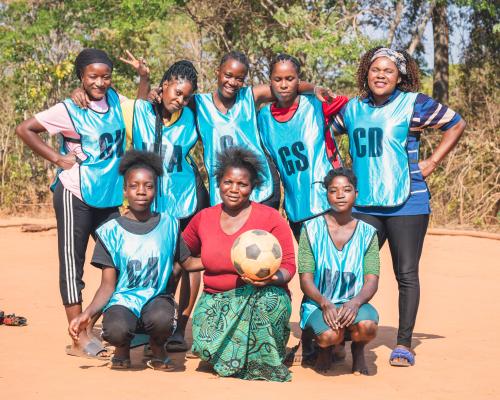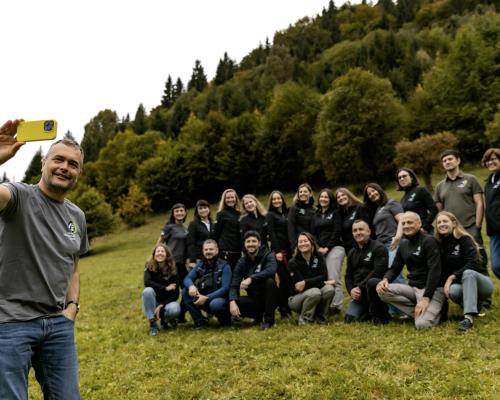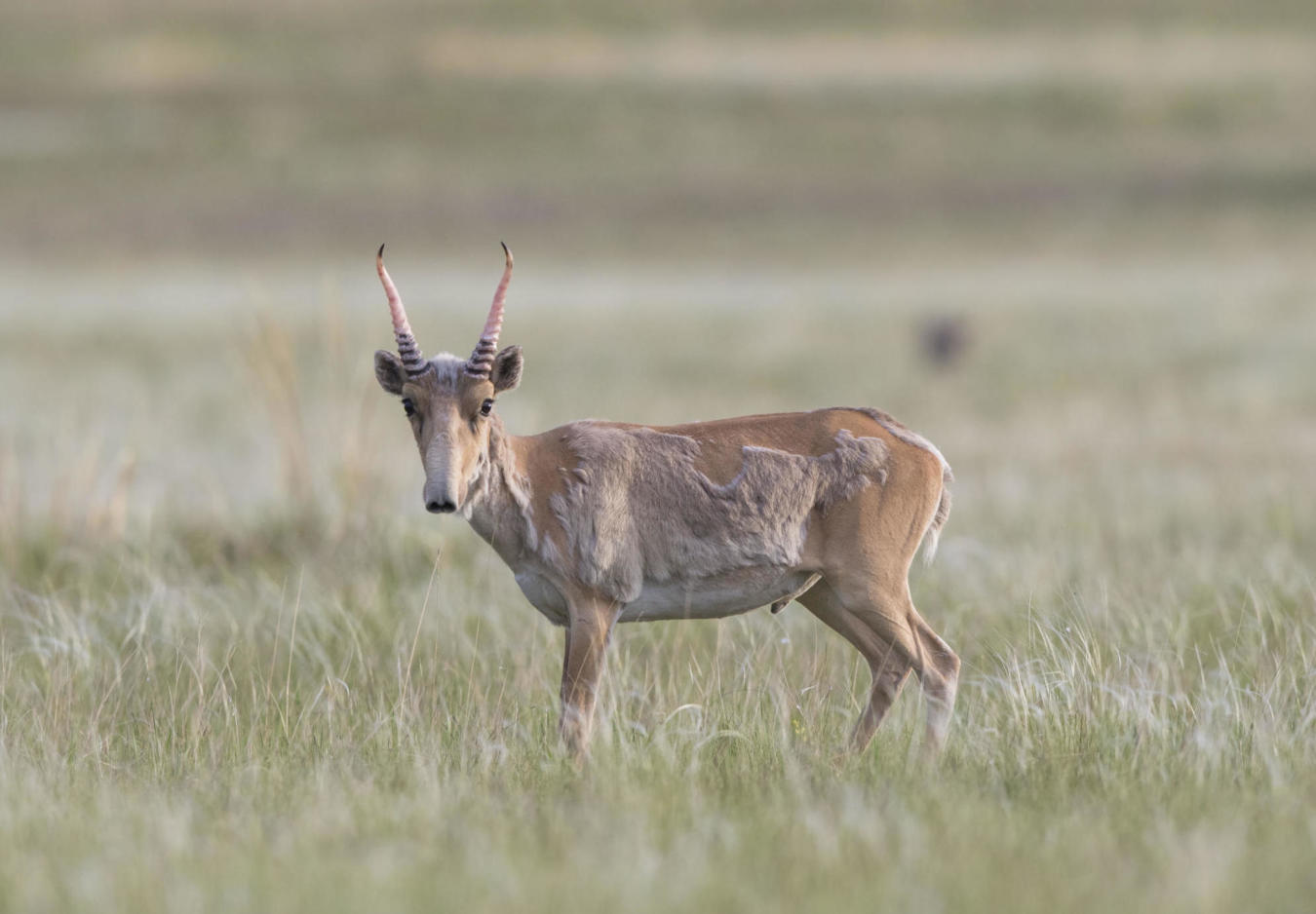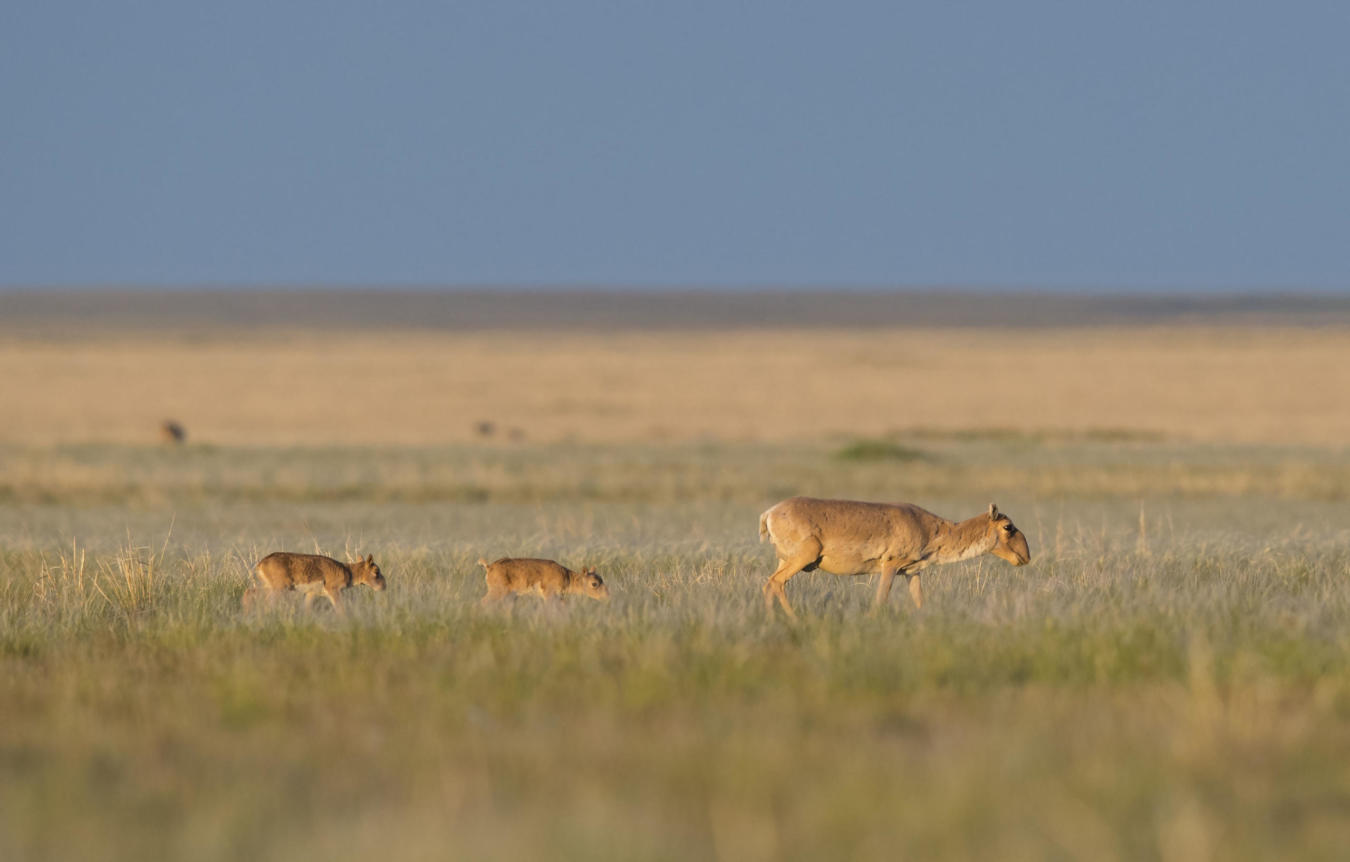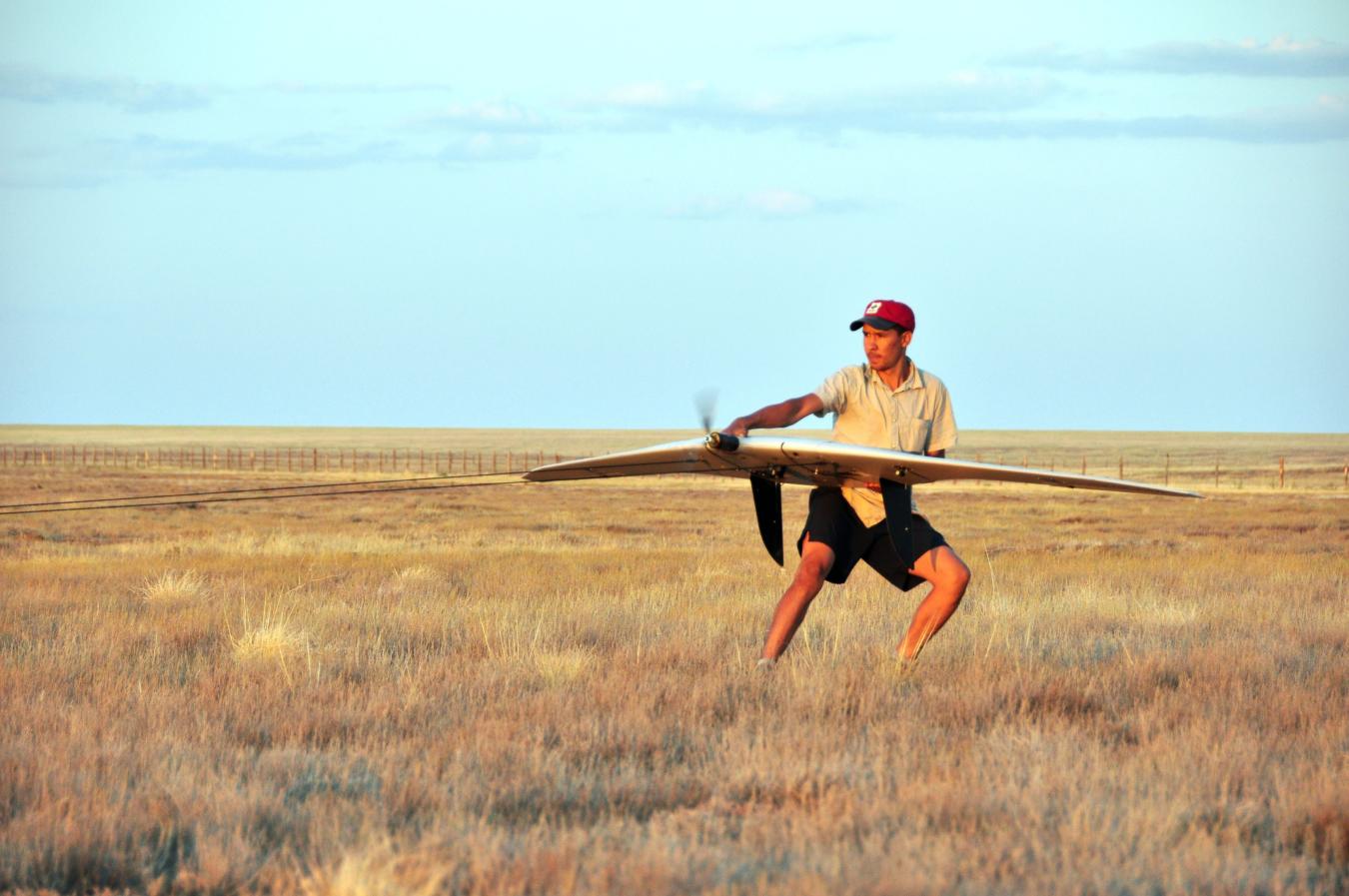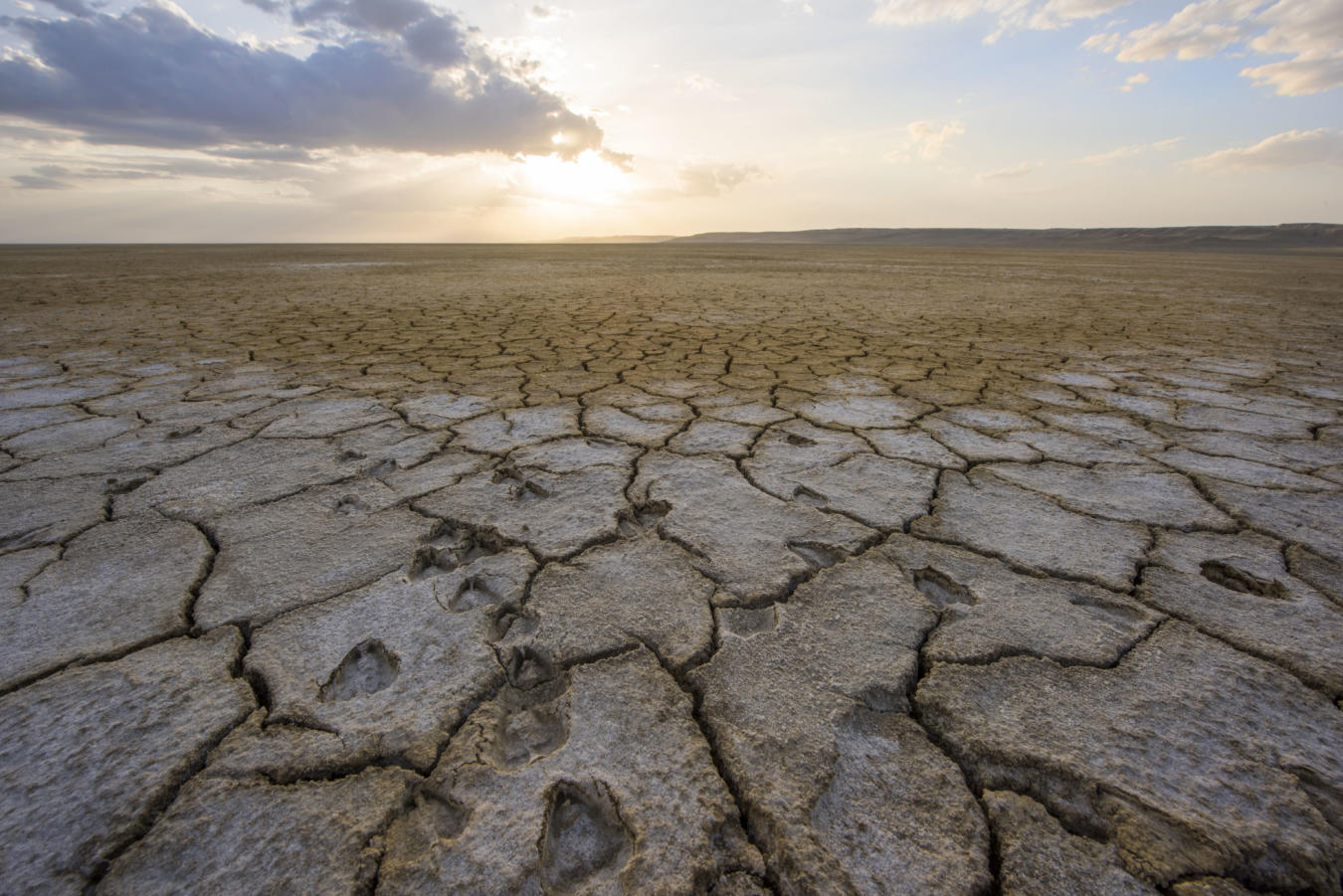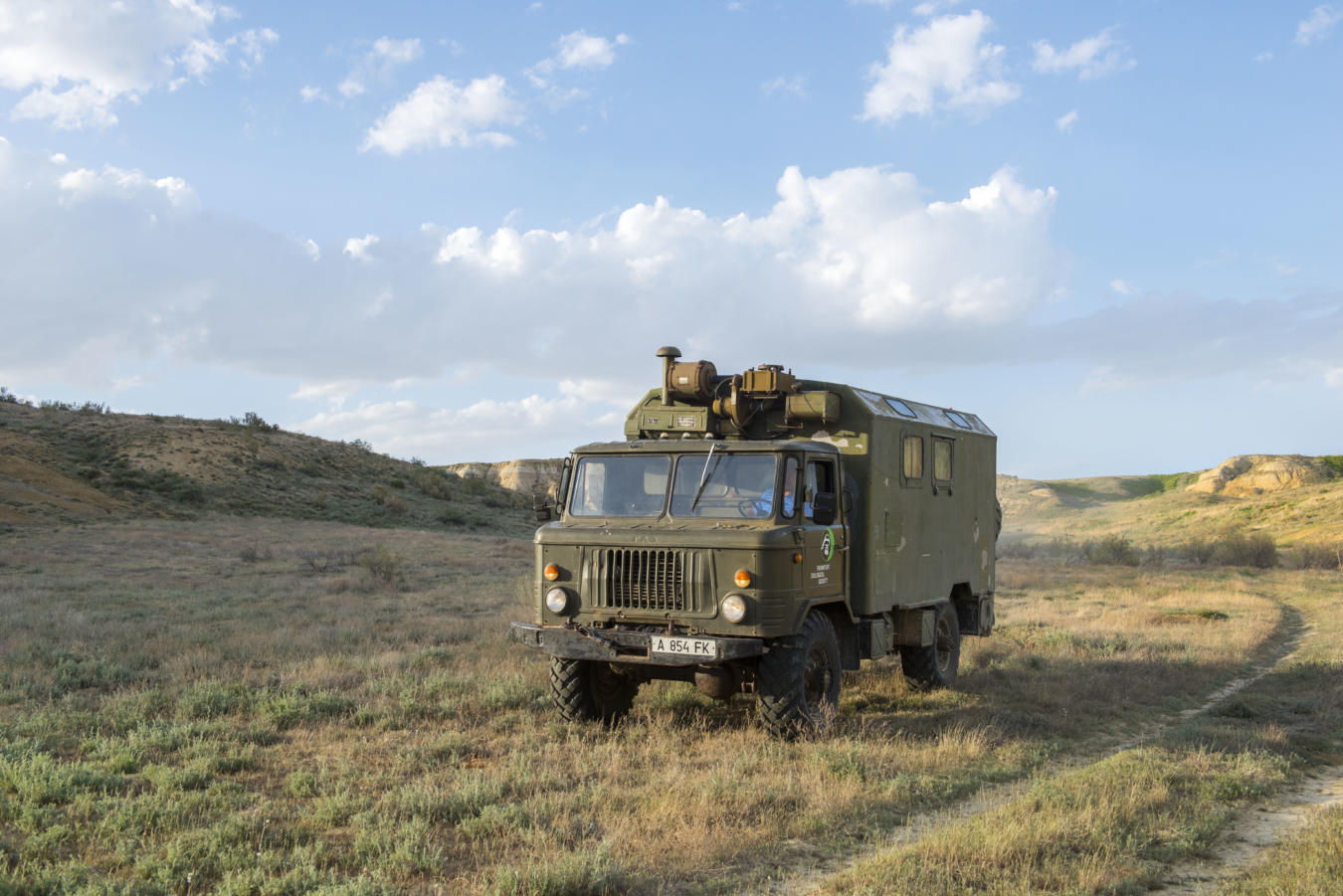Albert Salemgareyev from our partner Association for the Conservation of Biodiversity of Kazakhstan (ACBK) has been awarded the prestigious 2023 Whitley Award. He received the award for managing the Saiga Antelope Boom in Kazakhstan.
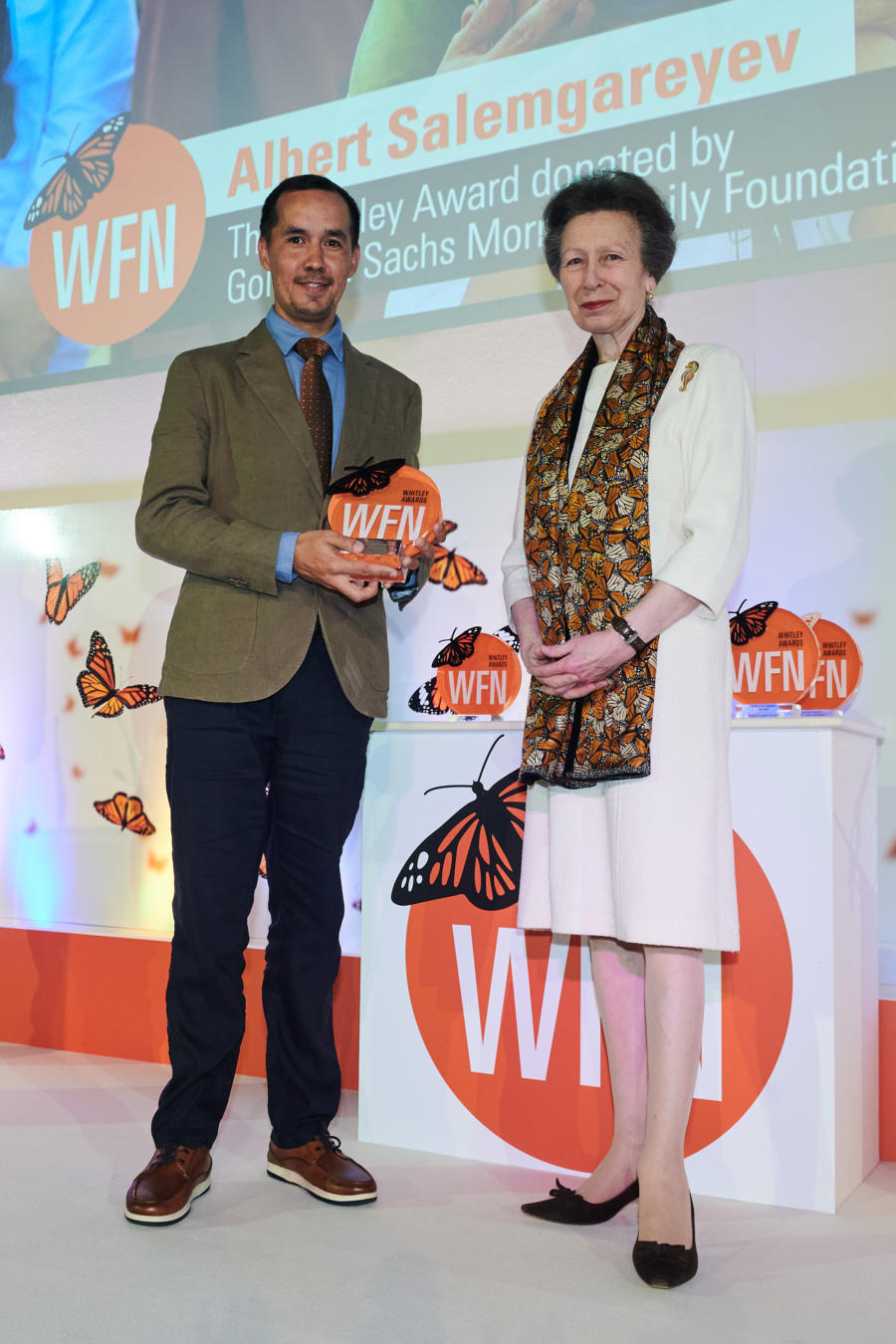
Albert Salemgareyev Wins Whitley Award
Whitley Fund for Nature (WFN) Patron, HRH The Princess Royal, presented the prize to Albert and five other winners on 26 April at the Royal Geographical Society in London. As FZS we are proud to support the work of Albert and ACBK in Kazakhstan and congratulate him on the well deserved award.
ACBK and FZS are founding partners of the Altyn Dala Conservation Initiative, a long-term coalition to preserve and enhance the grassland landscapes of Kazakhstan.
The steppes of Kazakhstan are not only a significant global carbon store, but they are also home to the critically endangered saiga antelope. In a spectacular comeback, the saiga now number 1.3 million individuals after falling to a low of 50,000 in 2006. However, the rising conflict between local herders and the saiga over dwindling water resources puts this remarkable success story of global conservation at risk.
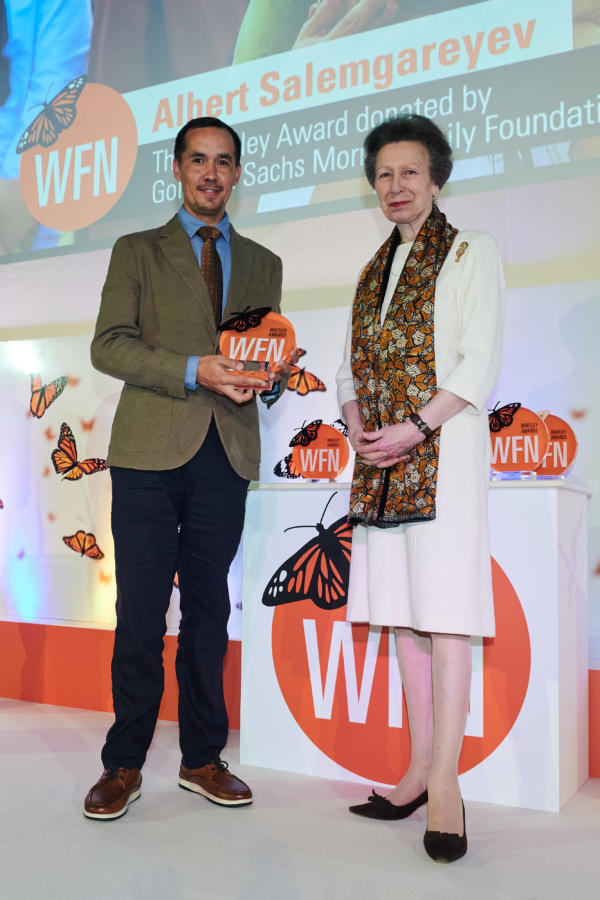
Albert Salemgareyev has embarked on a research initiative aimed at better understanding and resolving the conflict. Through this project, he will seek to understand the nature of the emerging conflict affecting the Ural saiga population and the estimated 300 pastoralists living in the landscape around the Bokey Orda and Ashiozek Protected Areas.
Amid calls for hunting of saiga to resume to control rising populations, Albert and his team aim to drive consensus and find sustainable solutions in a new community approach for Kazakhstan to include all stakeholders: the pastoralists, staff of the Protected Area as well as local government and civil society organisations.
Albert, who is Lead Specialist at ACBK has a history of success where his research has contributed to the creation of more than four million hectares of protected land across Kazakhstan.
Albert’s project will map the distribution and management practices of all major water resources that are vital for supporting life on the steppe and combine this with existing data on both livestock and saiga distribution in relation to those water resources.
Focusing on 15 hotspots, Albert and his team will gather scientific evidence and consult with local stakeholders to better understand the conflict, and then build trust among pastoralists, Protected Area staff and local government in the data that has been gathered.
Together, these stakeholders will co-design strategies for sustainable resource management, and share their findings widely to inform saiga conservation across Kazakhstan and into neighbouring countries.
The Altyn Dala Initiative has been recognized as a World Restoration Flagship under the UN Decade on Ecosystem Restoration. Watch the RESTORE documentary series to learn about winning solutions.
Kazakhstan’s vast western desert-steppe ecosystems are especially vulnerable to climate change. The country’s work to conserve and restore its steppe which spans 750,000 square kilometres was recognised by the United Nations in December as a World Restoration Flagship, one of only ten pioneering efforts to revive the natural world. However, anthropogenic and climate stresses are expected to contribute to significant water scarcity in Kazakhstan within a decade, according to the World Bank.






